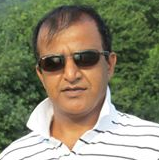A trial of shorter days for nurses at a Gothenburg care home is inspiring others across Scandinavia to cut back, but the cost of improving staff wellbeing is high
By David Crouch in Gothenburg
A Swedish retirement home may seem an unlikely setting for an experiment about the future of work, but a small group of elderly-care nurses in Sweden have made radical changes to their daily lives in an effort to improve quality and efficiency.
In February the nurses switched from an eight-hour to a six-hour working day for the same wage – the first controlled trial of shorter hours since a rightward political shift in Sweden a decade ago snuffed out earlier efforts to explore alternatives to the traditional working week.
“I used to be exhausted all the time, I would come home from work and pass out on the sofa,” says Lise-Lotte Pettersson, 41, an assistant nurse at Svartedalens care home in Gothenburg. “But not now. I am much more alert: I have much more energy for my work, and also for family life.”
The Svartedalens experiment is inspiring others around Sweden: at Gothenburg’s Sahlgrenska University hospital, orthopaedic surgery has moved to a six-hour day, as have doctors and nurses in two hospital departments in Umeå to the north. And the trend is not confined to the public sector: small businesses claim that a shorter day can increase productivity while reducing staff turnover.
At Svartedalens, the trial is viewed as a success, even if, with an extra 14 members of staff hired to cope with the shorter hours and new shift patterns, it is costing the council money. Ann-Charlotte Dahlbom Larsson, head of elderly care at the home, says staff wellbeing is better and the standard of care is even higher.
“Since the 1990s we have had more work and fewer people – we can’t do it any more,” she says. “There is a lot of illness and depression among staff in the care sector because of exhaustion – the lack of balance between work and life is not good for anyone.”
Pettersson, one of 82 nurses at Svartedalens, agrees. Caring for elderly people, some of whom have dementia, demands constant vigilance and creativity, and with a six-hour day she can sustain a higher standard of care. “You cannot allow elderly people to become stressed, otherwise it turns into a bad day for everyone,” she says.
After a century in which working hours were gradually reduced, holidays increased and retirement reached earlier, there has been an increase in hours worked for the first time in history, says Roland Paulsen, a researcher in business administration at the University of Lund. People are working harder and longer, he says – but this is not necessarily for the best.
“For a long time politicians have been competing to say we must create more jobs with longer hours – work has become an end in itself,” he says. “But productivity has doubled since the 1970s, so technically we even have the potential for a four-hour working day. It is a question of how these productivity gains are distributed. It did not used to be utopian to cut working hours – we have done this before.”
Continue reading Efficiency up, turnover down: Sweden experiments with six-hour working day →


